Potassium is a mineral that is often paired with magnesium in supplement form—and for good reason. Potassium and magnesium are two of the most important minerals required by the human body, and it’s important that you’re taking in enough of both to maintain the hundreds of bodily functions that require the two minerals. Of the two, however, magnesium usually gets the spotlight, so let’s switch it up and focus on the benefits of potassium instead.
Potassium Fast Facts:
• RDI (recommended daily intake): 4,700 mg daily for adult men and women
• Required for proper cell and organ functions within the human body
• Third most abundant mineral in the human bodyA key electrolyte, working alongside magnesium, sodium and calcium
• Potassium chloride is the most common form
• Whole foods, including produce, grains and nuts, provide dietary potassium
If you’re eating a healthy diet loaded with fresh fruits and vegetables, whole grains and nuts, you’re likely covering your daily need for potassium (about 4,700 mg for adults). Squash, potatoes, spinach, avocados, beans, bananas, Brussels sprout, broccoli, etc., are all wonderfully rich sources of natural potassium that can be easily added to your diet to fill in any gaps.
While outright potassium deficiency is rare, low potassium levels can bring on the following symptoms:
• Muscle weakness
• Fatigue
• Headache
• Irregular heartbeat
• Mood changes
• Constipation
• Nausea and vomiting
Top Health Benefits of Potassium
Potassium helps your muscles contract, regulates your body fluids, helps maintain healthy blood sugar and blood pressure levels, transmits nerve impulses and plays a big role in maintaining overall cardiovascular health. Here’s a closer look at some of potassium’s most important benefits.
Muscle contraction
Potassium is required for the regular contraction and relaxation of muscles. In fact, most of the potassium in your body is concentrated in your muscle cells. You might see athletes, especially endurance athletes, consuming a lot of bananas and avocados because the high amount of potassium in these foods helps control muscle cramps. Also, as your heart is a muscle, potassium helps maintain a regular heartbeat.
Electrolyte
Potassium is a key electrolyte, which helps your cells (specifically nerve, heart and muscle cells) transmit electrical impulses that control things like muscle contraction and transmission of information in your brain. Electrolytes like potassium are found within bodily fluids, including urine, blood and sweat, and regulated by your kidneys. Maintaining a proper electrolyte balance is critically important to maintain a functioning body.
Blood pressure and blood sugar
Potassium plays an important role in maintaining healthy blood pressure and healthy blood sugar levels in your body. A drop in potassium can negatively affect both of these key indicators of overall health.
Bone health
Research is looking into the possible correlation between bone density and potassium. A 2015 study published in Osteoporosis International found that a high consumption of potassium salts significantly decreases the urinary excretion of both acid and calcium. In other words, the dietary (not supplemental) potassium helps bones avoid reabsorbing acid while maintaining vital mineral content.
Potassium-rich foods
1 Avocado: An average avocado = about 1,000 mg of potassium
2 Winter Squash: One cup of cooked squash = nearly about 900 mg of potassium
3 Sweet potato: One medium-sized baked sweet potato = about 700 mg of potassium
4 Potato: One medium-sized baked potato (skin on) = about 600 mg of potassium
5 White beans: A half cup of cooked beans = about 600 mg of potassium
6 Halibut: Just 3 ounces of cooked halibut = about 500 mg of potassium
7 Broccoli: One cup of cooked broccoli = about 450 mg of potassium
8 Cantaloupe: One cup of cantaloupe = about 430 mg of potassium
9 Banana: One medium, ripe banana = about 420 mg of potassium
10 Pork tenderloin: 3 ounces of cooked pork tenderloin = about 380 mg of potassium
11 Lentils: One half cup of cooked lentils = about 360 mg of potassium
12 Salmon: 3 ounces of cooked salmon = about 320 mg of potassium
13 Pistachios: One ounce of dry roasted pistachios = about 300 mg of potassium
14 Raisins: Just a quarter cup of raisins = 250 mg of potassium
15 Chicken: 3 ounces of chicken breast = about 220 mg of potassium
Potassium Supplements
A staggering low percentage of Americans actually consume enough potassium on a regularly basis. Some studies show it’s as low as just 2 percent. However, as easy as it may sound to simply add a potassium supplement to your daily routine, studies also show quite demonstrably that dietary potassium is far more beneficial than supplemental potassium, likely due to the countless additional nutrients found in potassium-rich foods. So before you add a supplement to your cart, speak to your doctor or health professional to see how you might adjust your diet first to boost your potassium intake.













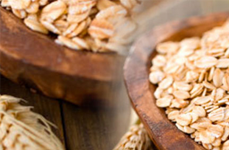
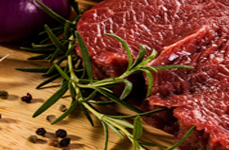
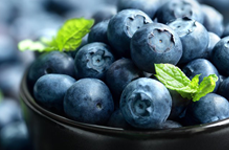

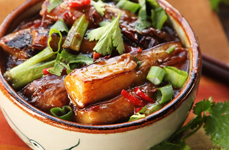
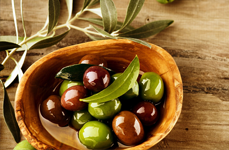
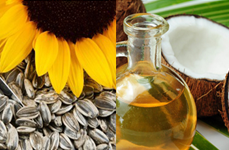



LEAVE A COMMENT :
Comments sort : Newest / Oldest / Most Upvoted